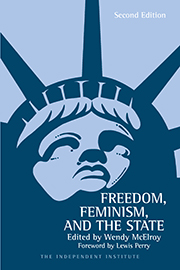What would you do if a lawyer threatened, “Give me a million dollars or my client and I will publicly brand you as a rapist and destroy your life?”
On July 27, the California Supreme Court expanded the range of choices possible to one man who was presented with that threat.
The dance phenomenon Michael Flatley of Riverdance fame can proceed not only with a lawsuit for defamation against his accuser but also with one for extortion against her lawyer.
The very fact that the attorney faces possible civil liability may impact how aggressively attorneys proceed in lawsuits that allege sexual misconduct. A common reason for settling such suits is fear of publicity.
Flatley’s lawyers contend that the drama started when their client achieved wealth and renown as the creator and a lead dancer of the theatrical show Riverdance. At that point, he became a celebrity target.
In October 2002, Flatley and his accuser Tyna Marie Robertson had a sexual encounter in a Las Vegas hotel. Twenty-five days later, she called Nevada from Illinois to report a rape.
According to Las Vegas Police Lieutenant Jeff Carlson, a rape report was taken but the authorities declined to pursue charges. Flatley insists the sex was consensual.
Robertson then filed a $33 million civil sexual assault suit against Flatley in Illinois.
(Robertson was also in the news last year for litigation surrounding the claim that Chicago Bears linebacker Brian Urlacher fathered her child and, so, should pay her support; DNA tests confirmed his paternity. According to private investigator Ernie Rizzo, who worked for both Flatley and Urlacher, Robertson has had other relationships with wealthy and famous men that ended in litigation.)
Robertson’s suit was unsuccessful. Meanwhile, however, Flatley filed a $100 million countersuit against her, which included Mauro as a co-defendant for the work he did on Robertson’s behalf. Extortion, which is commonly called blackmail, was among the charges leveled at both.
Why was the attorney included?
In January 2003, Mauro sent Flatley a letter on Robertson’s behalf in which he demanded a “seven figure” settlement; his fee would be 40 percent.
Without a settlement, Mauro stated that Robertson would pursue criminal charges. Moreover, he would file a civil suit and “go public” with allegations that would “ruin” Flatley.
Court documents show he threatened to send news releases to media outlets such as Fox News and the Chicago Tribune. He continued, “Any and all information, including Immigration, Social Security Issuances and Use, and IRS and various State Tax Levies and information will be exposed.We are positive the media worldwide will enjoy what they find.”
John Brandon, one of Flatley’s attorneys, further attested that Mauro warned him, “I know the tour dates [of Flatley’s shows]; I am not kidding about this; it will be publicized every place [the dancer] goes for the rest of his life.”
The question now became whether an attorney could be sued for representation that veered into criminal acts. (Presumably, because the threats were delivered to Flatley’s attorneys in Los Angeles, the issue moved to the California courts.)
In attempting to have the lawsuit against him struck down, Mauro did not deny the communications. Instead he argued that they were lawyer-to-lawyer communications that constituted a “pre-litigation settlement offer” and, as such, they were protected by the First Amendment.
Mauro invoked anti-SLAPP statutes: that is, statutes prohibiting ‘Strategic Lawsuits Against Public Participation’, which are meant to protect free speech and the people’s right to petition government.
The court ruled against Mauro, who appealed.
On Sept. 2, 2004, the 2nd District California Court of Appeal found, “Mr. Mauro has effectively conceded and it is undisputed his speech and conduct are crimes. No prima facie showing has been made that Mr. Mauro’s speech and conduct are anything other than unprotected acts of extortion.”
The court also noted “Plaintiff, Michael Flatley, is to recover his costs on appeal from defendant, E. Dean Mauro.”
In December 2004, the California Supreme Court agreed to review whether or not a case could proceed.
In writing last week’s decision for the court, Justice Carlos R. Moreno stated, “A threat that constitutes criminal extortion is not cleansed of its illegality merely because it is laundered by transmission through the offices of an attorney.”
Flatley plans to proceed.
James Holmes, an attorney for Mauro, says that he expects to win.
Holmes had argued earlier to the Supreme Court that attorneys must be free from fear of retaliation if the “American adversarial system is to work.” He now believes that attorneys face “a dilemma” created by the Supreme Court decision. Attorneys are ethically obligated to advocate zealously for their clients but too much zeal may result in civil liability.
The case is not likely to go away or to be settled quietly. A huge sum of money and an important legal precedent are at stake. Moreover, Flatley is a plaintiff with both the finances and the fortitude for a long court battle; he wants his reputation back.
A high-profile case on the accountability of attorneys would be good news. At least it would be for people who believe, as I do, that some attorneys appear to be out-of-control and almost immune from consequences for their intentional, wrongful acts.
A court that finds against Mauro would be even better.









